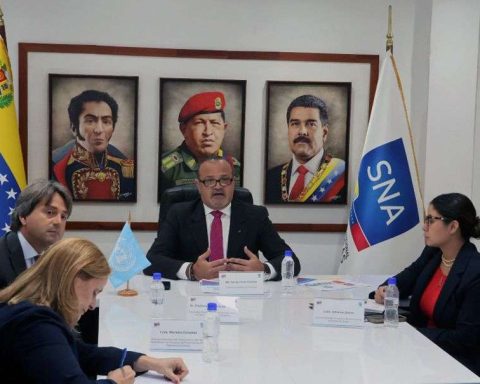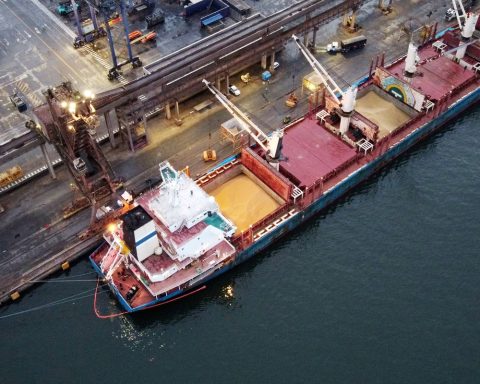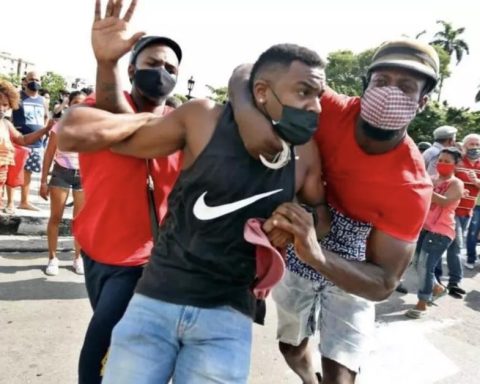The Chamber of Deputies and Deputies approved the constitutional reform law initiative that establishes that the Armed Forces (FF.AA.) guard critical infrastructure without having the need to decree a State of Constitutional Exception.
The norm was approved by 97 votes in favor, 17 against and 28 abstentions. This, after the approval by the Senate of the report of the Mixed Commission last Tuesday (37 in favor, 1 against and 3 abstentions).
You may also like:
As stated Third, the initiative that must be promulgated by the President Gabriel Boric he obtained the vote against the bench of the Communist Party, the Humanist Party, the Green Social Ecologist Party and the Broad Front; while parliamentarians from Approve Dignity and the Republican Party abstained.

Credits: Chamber of Deputies and Deputies
It should be noted that this project had been in Parliament since 2019, when it was presented by the senators of Chile Vamos, Kenneth Pugh Y Carmen Gloria Aravena and it was picked up by the current Government after seeking an Intermediate State to protect the country’s routes –mainly the Mapuche conflict zone– without having to declare a State of Constitutional Exception.
Not having the support of the ruling party, the Ministry of the Interior chose to decree a “limited” State of Exception in the Mapuche conflict zone after the latest episodes of violence recorded in the area and scrap the project. Although this continued its legislative path until it was approved this day.
Before the approval of the norm, the minister of the Segpres, George Jackson –who went to Valparaíso to be present at the vote–, maintained that “this undoubtedly requires a regulation that defines several aspects that were not, in the opinion of the legislator, included in the reform. And it is true that there are matters that have to be seen , such as the chain of command, also related to the way in which Congress has to be informed”.
“What we can guarantee as an Executive is that, using tools like this, it is especially sensitive for us to be able to guarantee the population has to be balanced with protection and care and guarantees of non-violation of human rights,” Jackson added. .
The project
The approved project establishes as critical infrastructure “the set of essential facilities, systems or services of public utility, as well as those whose affectation causes serious damage to the health or to the supply of the population, to economic activity, to the environment or to the security of the country”.
Faced with this scenario, the Armed Forces will act when there is a serious or imminent danger to the critical infrastructure as long as it is via a founded supreme decree, through the Ministries of the Interior and Public Security and of National Defense.
In turn, it is established that “in no case the exercise of this power may imply the suspension, restriction, limitation or affectation of the rights and guarantees enshrined in the Constitution or in international treaties on human rights ratified by Chile and that are in force The Armed Forces will also not be able to assume functions related to the control or reestablishment of public order.”
However, the limit of this decree is indicated, which is 60 days, “notwithstanding that it may be extended for the same period, with the agreement of the National Congress.”
reactions
To the same medium, the Independent deputy with a quota from the Republican Party, Mauricio Ojedaspecified that “no sensible parliamentarian, much less being from the Araucanía Region, could be against voting on this project (…), a project that parliamentarians who have been here for several periods have already been discussing at length, it was like that too that we witnessed that the President of the Republic himself, the minister who accompanies us (Giorgio Jackson) in the Chamber, the minister spokesperson Camila Vallejo, have already voted against this project, I congratulate the fact that people can change their opinion and opinion and in that sense that they have the support of this parliamentarian”.
For his part, the parliamentarian of the Democratic Revolution (RD), Jorge Britostated that “of course we are not opposed to providing security to critical infrastructure, security is one of the fundamental aspects that all people require in order to develop and move forward, what we do not share is that it be with the military and not with the police with whom critical infrastructure must be protected”.
Along the same lines, the socialist deputy Marcos Ilabaca explained that “from the Socialist Party caucus we have said ad nauseam that we are going to support each of the initiatives that this government implements to pursue social peace and what today we are voting is to provide the President of the Republic with an instrument that effectively allows him to take care of critical infrastructure”.
While the Republican Luis Sánchez valued the approved initiative, but criticized the Government for not going further in the security of Chileans. “This is a good initiative, but as far as possible, it is the furthest we can go with a government that is timid with public security, a limited government. I am very sorry that it makes it so difficult for the left to safeguard the security of all Chileans,” he said.
















